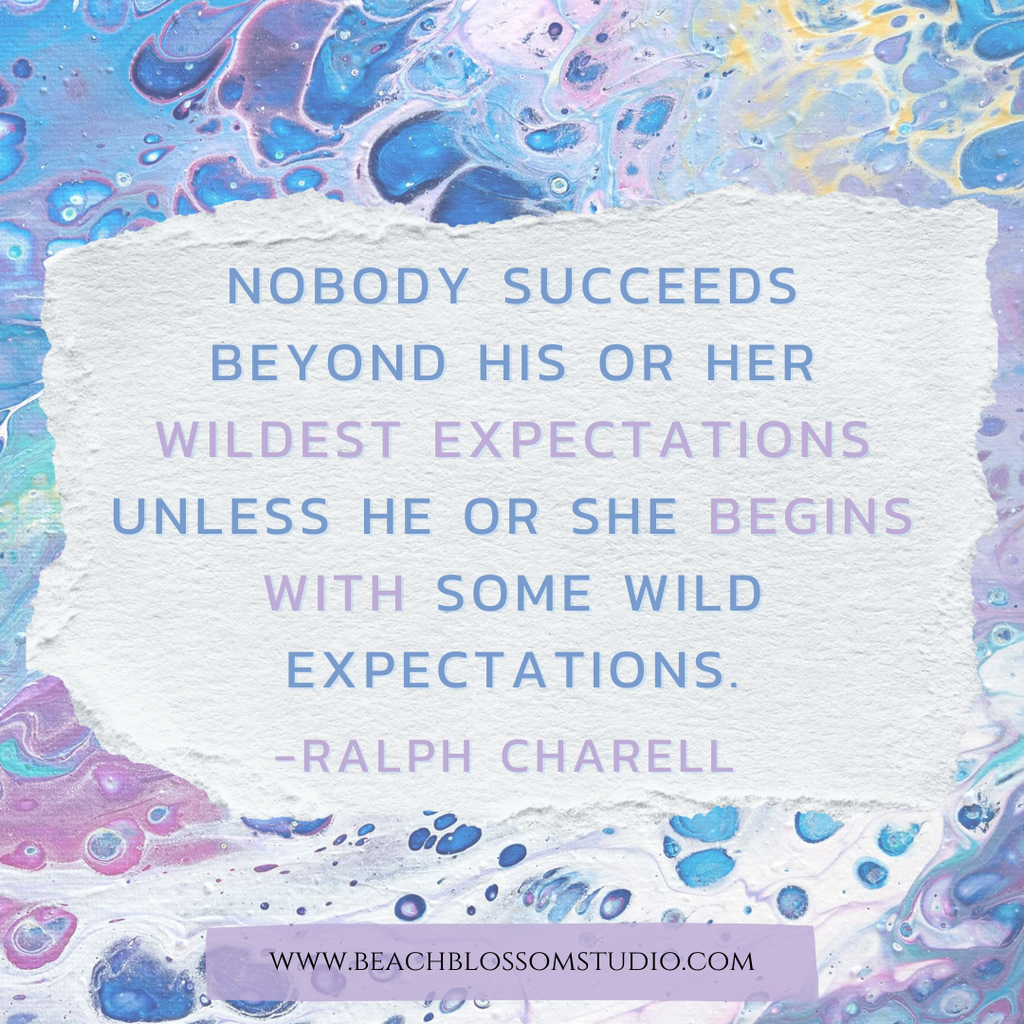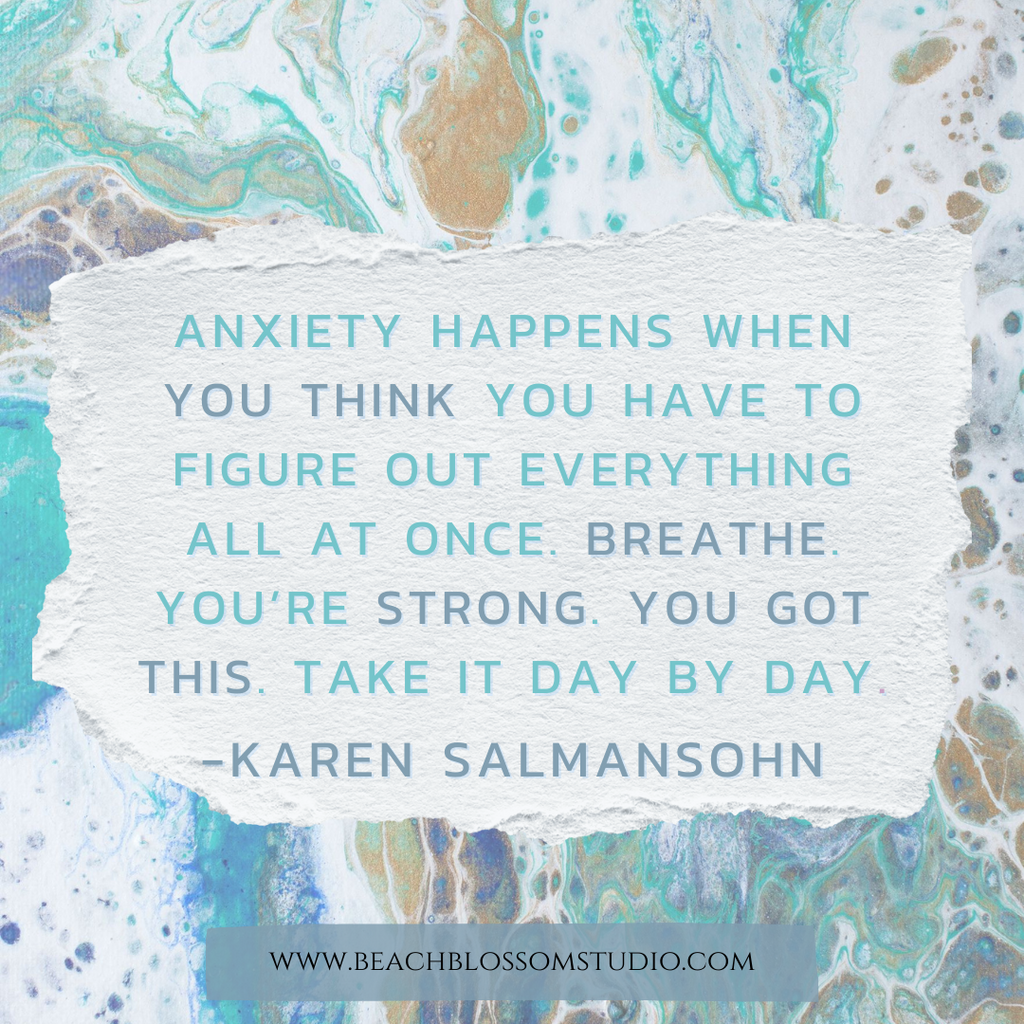What are your expectations for your life? Are you excited about your future or are you facing it with apprehension and fear? For most people, the future holds many uncertainties and the fear of what might happen tends to overshadow the ray of light that represents the life they ultimately desire.
One of the hardest things to do in life is to lift yourself out of your current circumstance and step up to the level of life you desire.
We all live with an unconscious expectation of ourselves and our own lives. This expectation not only determines what we have in our lives but also represents what we are willing to settle for. The expectation is a very powerful emotion and one that very few people ever learn to fully cultivate. Whatever you expect with certainty is what you will get in your life. The expectation is the emotional state where an idea becomes so real that you feel it even though you can't hold it yet.
The expectation is like an invisible magnet that will attract into your life what you expect. When you expect something you activate and engage those parts of your mind and the nervous system that can empower you to think the unthinkable and do the undoable. One of the most powerful ways to cultivate expectation is to develop a very clear vision for your life.

What Do You Truly Want?
The first step in raising your expectations is to identify what you truly want. This may sound obvious, but it's easy to get bogged down in what we think we should want or what others tell us we should want. Take some time to really reflect on your desires, dreams, and goals. Ask yourself, "What would I truly love to achieve?" "What would make me feel fulfilled?" "What is my ideal outcome?" Once you have a clear understanding of what you want, you can start to set expectations that align with those desires.
It's important to challenge yourself and push yourself outside of your comfort zone, but it's equally important to set expectations that you can realistically achieve. Think about what you're capable of and set expectations that stretch you just enough without overwhelming you. Setting unrealistic expectations will only lead to frustration and disappointment, so be honest with yourself about what you can accomplish.
Believing What You Deserve
Most people expect the worst and hope for the best. Our cultural conditioning has taught us things like "don't get your hopes up" – just in case you might be disappointed. We've been taught to aim as low as possible. Everything above that will be a bonus. Right? Wrong! Remember that what you expect with certainty is what you will get in your life. You have to break away from the autopilot of the masses that just settle for an ordinary life; a life where they are not really happy but they are not unhappy to do something about it.
If you want to lift your life and the quality of your life to a higher level than what it is at the moment you need to start by raising your expectations. Raise your expectations of what you are as a person and what you believe you deserve. See, what you believe you deserve is based on your expectations. When you lift your expectations to a higher level you raise your own standards and raising your standards is the first step to improving your life.
When you expect only the very best you will get only the very best. What you earn right now is what you expect to earn. The amount of free time you have right now is what you expect to have as free time. The relationships you have are what you expect them to be. When you expect the best it's not like expecting something good or something similar, but it is the best and only the best. You have to stop settling for less than you can be or have.

Raising Your Expectations
Raising your expectations requires no special skills or knowledge. All it takes is a simple decision - a commitment to never again settle for anything less than your fullest potential. It's the difference between simply hoping for something and truly expecting it. And the key to cultivating this expectation lies in the way you direct the focus of your mind.
Through conscious effort, you can control your thoughts, your imagination, and your behavior. By doing so, you can break free from the cultural autopilot that most people operate on and chart your own path toward abundance and fulfillment.
Great expectations lead to great results. When you set high standards for yourself and expect nothing but the best, you'll find that opportunities and resources start to align themselves with your desires. It's a powerful mindset shift that can make all the difference between living a life of frustration and desperation and one of deep satisfaction.
So make a sincere decision to raise your expectations, and never settle for anything less than your best. Nurture this expectation with conscious effort and consistent focus, and watch as your life transforms in ways you never thought possible. The power is within you - all you have to do is choose to harness it.

Remember
Raising your expectations can be a powerful tool for achieving your goals and living a fulfilling life. By making a conscious decision to never settle for anything less than your best, you can break free from the cultural autopilot that often keeps people stuck in a cycle of mediocrity.
Instead, you can create a mindset of great expectations that guides you toward seeking out and achieving your desires. With consistent effort and focus, you can raise your expectations and live life on your own terms, fulfilling your potential and achieving great success. So make the decision to expect the best for yourself, and watch as your life transforms in amazing ways.













